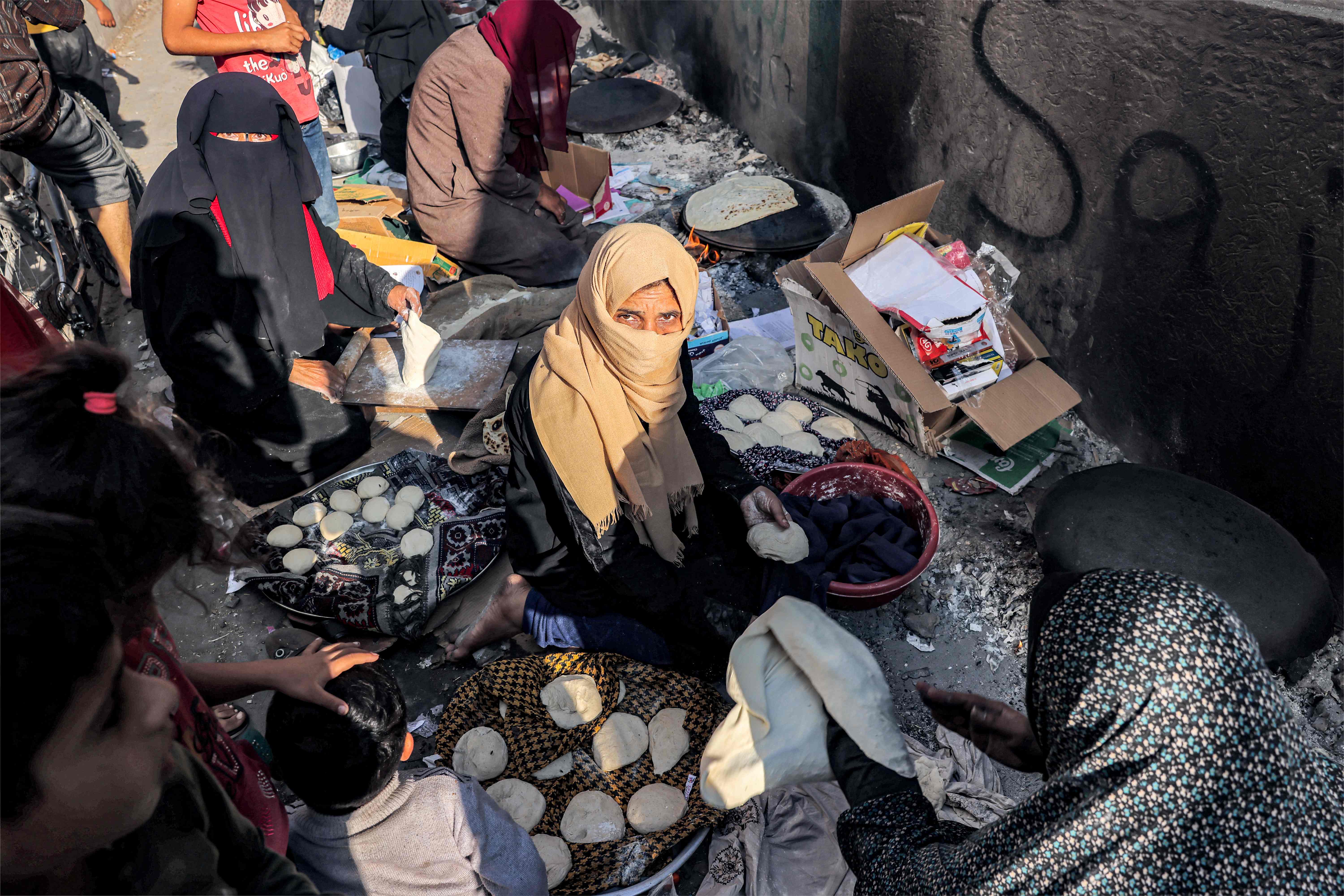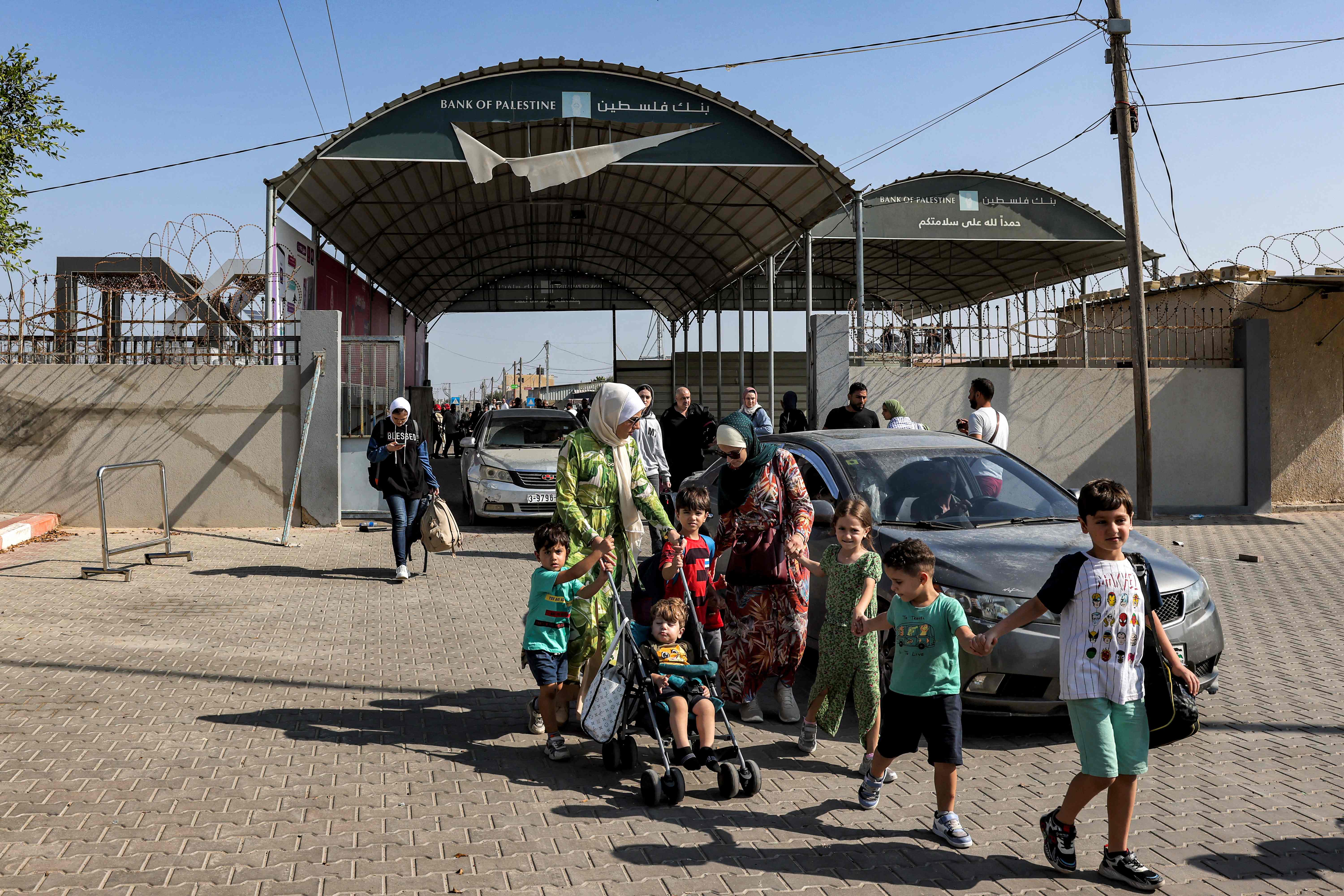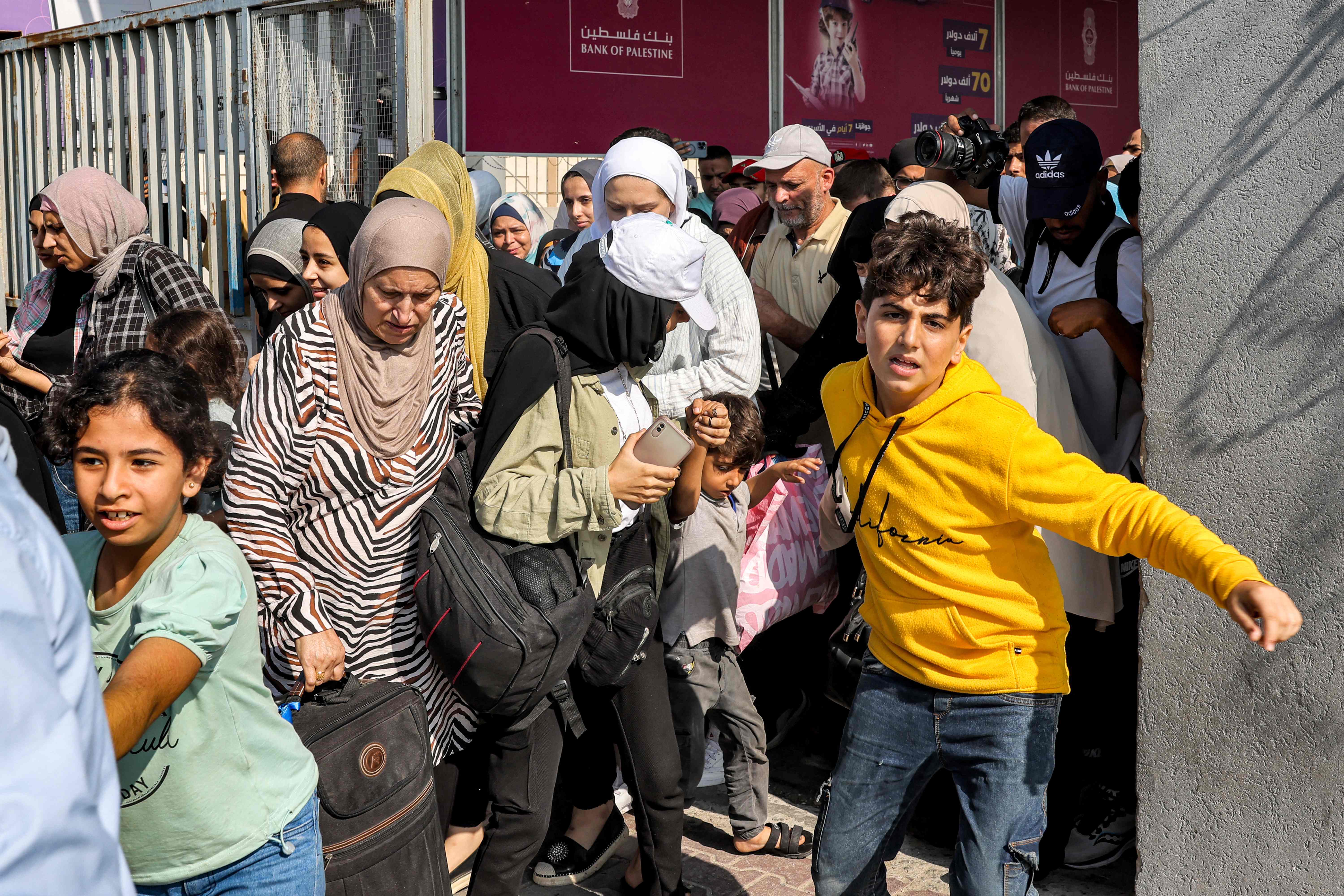Hundreds fleeing Gaza gather at border as Egypt opens Rafah crossing for first time since 7 October
It is not clear how long Rafah border crossing will remain open for evacuation
Your support helps us to tell the story
From reproductive rights to climate change to Big Tech, The Independent is on the ground when the story is developing. Whether it's investigating the financials of Elon Musk's pro-Trump PAC or producing our latest documentary, 'The A Word', which shines a light on the American women fighting for reproductive rights, we know how important it is to parse out the facts from the messaging.
At such a critical moment in US history, we need reporters on the ground. Your donation allows us to keep sending journalists to speak to both sides of the story.
The Independent is trusted by Americans across the entire political spectrum. And unlike many other quality news outlets, we choose not to lock Americans out of our reporting and analysis with paywalls. We believe quality journalism should be available to everyone, paid for by those who can afford it.
Your support makes all the difference.Egypt opened the Rafah crossing on its border with Gaza for the first time since the Israel-Hamas war began as hundreds of people gathered at the crucial point, waiting to flee the conflict zone.
The first group of foreign passport holders will be allowed to leave the war-torn Gaza Strip for Egypt on Wednesday, an Egyptian official told AFP. However, it was not immediately clear how long the Rafah crossing will remain open for evacuation.
Al Jazeera reported “huge queues” at the terminal and around crossing booths for checks on passports and other documents. It said ambulances waited on the Egyptian side to take away the wounded and sick.
Images and videos at the border showed crowds of people carrying their belongings and cars moving through the gates towards the Egyptian side, with ambulances carrying wounded Palestinians.
Until now no one has been allowed to leave Gaza through the Rafah crossing, except for four hostages released by Hamas militants since the Israel-Hamas conflict began on 7 October.
Egypt has agreed to bring in 81 of the most badly wounded to its soil on Wednesday, the border authority in Gaza said.
Qatar brokered the agreement between Egypt, Israel, and Hamas to allow limited evacuations of foreign passport holders and some severely injured people out of war-torn Gaza.


The agreement, mediated in coordination with the US, was not linked to other items currently under negotiation including the release of hostages or humanitarian pauses, the source told Reuters.
The Rafah crossing is a critical passage – a sole point between Egypt and the Gaza Strip – through which only a “the handful of convoys” have been allowed to enter the besieged area with humanitarian aid, food and water.
Earlier, the Israeli military admitted to launching a wide-scale airstrike on the densely inhabited Jabalia refugee camp where potentially “dozens” of civilians have been killed.
The death toll of Palestinians in the continuing Israel’s war on the region has reached 8,525, the Hamas-run health ministry in Gaza said. More than 122 Palestinians have also been killed in the occupied West Bank in violence and Israeli raids, officials said.
Hamas has told mediators it will soon release some of the 200 or so foreign captives it had seized during the attack on Israel, Abu Ubaida, the spokesperson of the group’s armed wing, al-Qassam Brigades, said in a video on the Telegram app. He gave no further detail on the number of captives or their nationalities.
Egypt has prepared a field hospital in Sheikh Zuwayed in the Sinai, according to medical sources. Ten ambulances were sent to Rafah on Tuesday in anticipation.
More than 1,400 people were killed in Israel – most of them civilians – in the initial Hamas rampage on 7 October. Several international agencies and hundreds of nations have called for a humanitarian truce in the region witnessing deaths of hundreds of children in Israeli strikes.
However, prime minister Benjamin Netanyahu has rejected calls for a cease-fire and again vowed to crush the militant group’s ability to govern Gaza or threaten Israel.

The region, which houses millions of Palestinians, again fell dark on Wednesday due to communication blackout as locals reported another widespread outage of internet and phone services in Gaza. This comes alongside Israeli airstrikes flattening apartment buildings near Gaza City and as ground troops battled Hamas militants inside the besieged territory.
The Gaza strip has been sealed off since the start of the war, causing shortages of food, water, medicine and fuel. While Israel has allowed international aid groups to send more than 200 trucks carrying food and medicine to enter from Egypt over the past 10 days, the aid workers have said that it is not nearly enough to meet the ground-level casualties.
The nation has not received any fuel imports after Israel barred the region from receiving any, but has adversely impacted hospitals relying on generator operations. Israel says it won’t allow fuel to enter because Hamas would confiscate it to use for military purposes.

Join our commenting forum
Join thought-provoking conversations, follow other Independent readers and see their replies
Comments